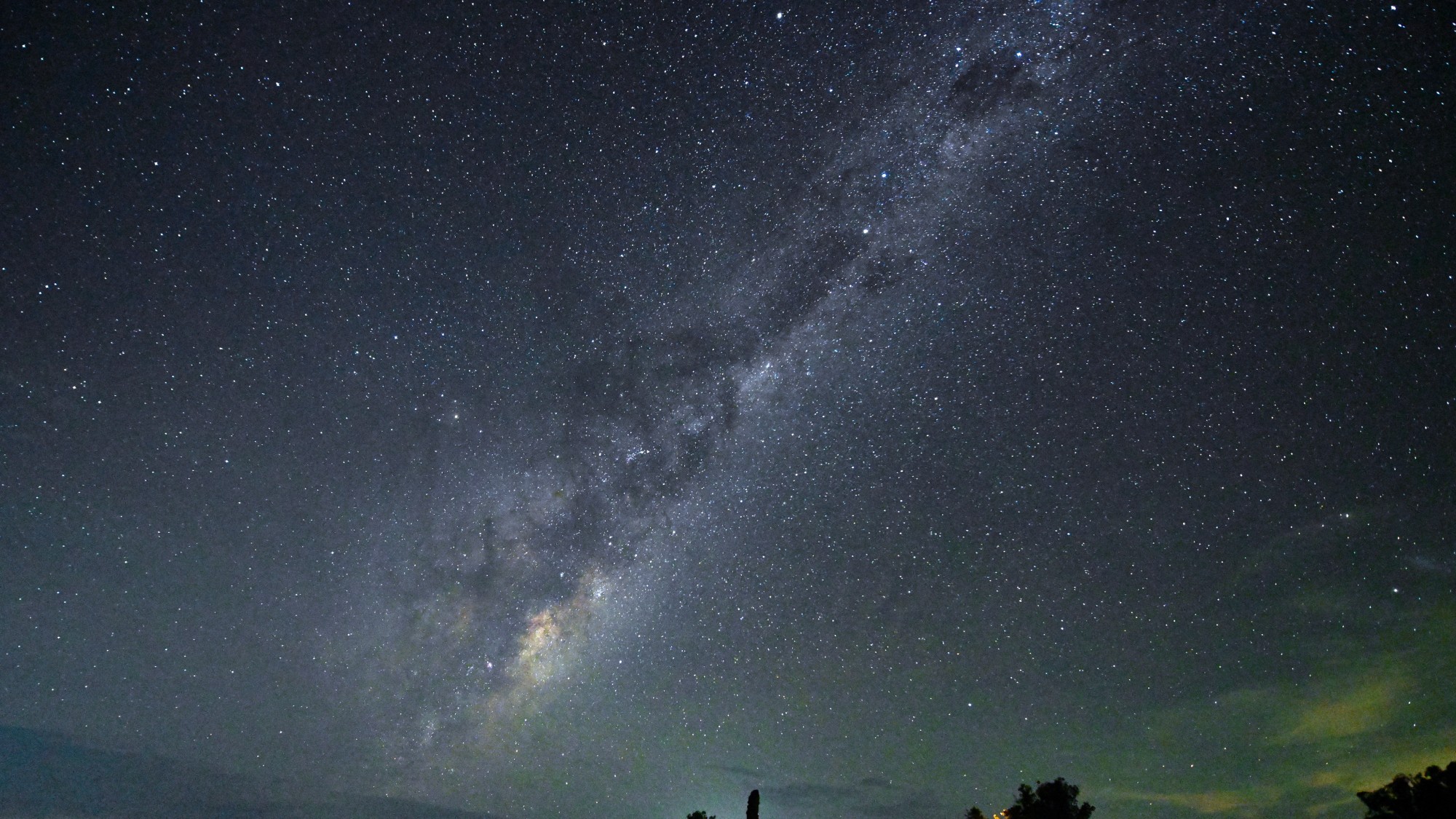‘The Big Crunch’: why science is divided over the future of the universe
New study upends the prevailing theory about dark matter and says it is weakening

A free daily email with the biggest news stories of the day – and the best features from TheWeek.com
You are now subscribed
Your newsletter sign-up was successful
The expansion of the universe may be slowing down rather than accelerating, according to a new study that challenges the Nobel Prize-winning theory of dark energy.
“If confirmed, this would have profound implications for the fate of the universe,” said The Guardian. The study raises the possibility that “rather than expanding for ever, the universe could ultimately enter a reverse Big Bang scenario known as the Big Crunch”.
What is happening?
Dark energy is already “mysterious and baffling” and the new findings from a team at Yonsei University in South Korea suggest that this force “may not be driving galaxies apart at an accelerating rate any more”, said Space.com. Instead, researchers propose, it is weakening over time.
The Week
Escape your echo chamber. Get the facts behind the news, plus analysis from multiple perspectives.

Sign up for The Week's Free Newsletters
From our morning news briefing to a weekly Good News Newsletter, get the best of The Week delivered directly to your inbox.
From our morning news briefing to a weekly Good News Newsletter, get the best of The Week delivered directly to your inbox.
In the 1990s, astronomers made the first estimates of the expansion of the universe by studying exploding stars, known as type 1a supernovas. The distant supernovas were dimmer than expected, leading past studies to conclude that the expansion of the universe had sped up and was continuing to accelerate.
But by estimating the ages of 300 host galaxies, the latest study, published in the Monthly Notices of the Royal Astronomical Society, concluded that there are variations in the properties of stars in the early universe that mean they produce, on average, fainter supernovas. So there is still an expanding universe, but, the findings suggest, the expansion has slowed down.
Who said what?
There was a “key assumption” that “turned out to be incorrect”, said Professor Young-Wook Lee, one of the study’s authors. “It’s like doing up a shirt with the first button fastened incorrectly.”
But some experts question the new findings. The study is “definitely interesting” and “very provocative”, but it “may well be wrong”, said Professor Carlos Frenk, a cosmologist at the University of Durham.
A free daily email with the biggest news stories of the day – and the best features from TheWeek.com
Although the findings are “likely to be greeted with heavy scepticism”, said The Guardian, the “influential” Desi consortium reached a similar conclusion earlier this year, so “a fierce debate is opening up in cosmology” over the nature of dark energy and the “probable fate” of the universe.
What does this mean for the universe?
If the findings are confirmed the implications are profound: it could “open an entirely new chapter” in the “quest” to “understand the past and future of the universe”, said Phys.org.
The study could “revolutionise” our understanding of the universe, said Space.com, and “offer clues about how our cosmos will end”, because if dark energy has “lost the battle against gravity”, the next step could be “the contraction of space”. That would suggest the universe will end in a ”Big Crunch” – effectively the Big Bang in reverse.
Chas Newkey-Burden has been part of The Week Digital team for more than a decade and a journalist for 25 years, starting out on the irreverent football weekly 90 Minutes, before moving to lifestyle magazines Loaded and Attitude. He was a columnist for The Big Issue and landed a world exclusive with David Beckham that became the weekly magazine’s bestselling issue. He now writes regularly for The Guardian, The Telegraph, The Independent, Metro, FourFourTwo and the i new site. He is also the author of a number of non-fiction books.
-
 Political cartoons for February 15
Political cartoons for February 15Cartoons Sunday's political cartoons include political ventriloquism, Europe in the middle, and more
-
 The broken water companies failing England and Wales
The broken water companies failing England and WalesExplainer With rising bills, deteriorating river health and a lack of investment, regulators face an uphill battle to stabilise the industry
-
 A thrilling foodie city in northern Japan
A thrilling foodie city in northern JapanThe Week Recommends The food scene here is ‘unspoilt’ and ‘fun’
-
 How roadkill is a surprising boon to scientific research
How roadkill is a surprising boon to scientific researchUnder the radar We can learn from animals without trapping and capturing them
-
 NASA’s lunar rocket is surrounded by safety concerns
NASA’s lunar rocket is surrounded by safety concernsThe Explainer The agency hopes to launch a new mission to the moon in the coming months
-
 Nasa’s new dark matter map
Nasa’s new dark matter mapUnder the Radar High-resolution images may help scientists understand the ‘gravitational scaffolding into which everything else falls and is built into galaxies’
-
 The world’s oldest rock art paints a picture of human migration
The world’s oldest rock art paints a picture of human migrationUnder the Radar The art is believed to be over 67,000 years old
-
 Moon dust has earthly elements thanks to a magnetic bridge
Moon dust has earthly elements thanks to a magnetic bridgeUnder the radar The substances could help supply a lunar base
-
 The ocean is getting more acidic — and harming sharks’ teeth
The ocean is getting more acidic — and harming sharks’ teethUnder the Radar ‘There is a corrosion effect on sharks’ teeth,’ the study’s author said
-
 How Mars influences Earth’s climate
How Mars influences Earth’s climateThe explainer A pull in the right direction
-
 Cows can use tools, scientists report
Cows can use tools, scientists reportSpeed Read The discovery builds on Jane Goodall’s research from the 1960s